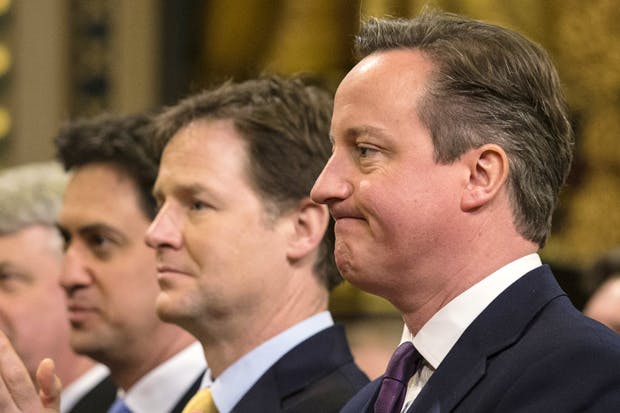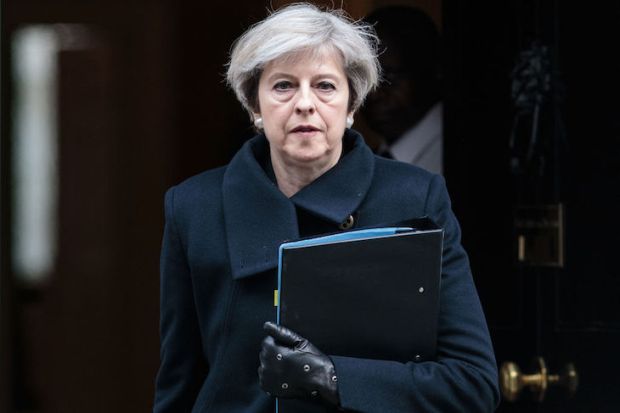A recent email from Samantha Cameron started an intriguing debate in the Prime Minister’s social circle. It was an invitation to a Christmas party at Chequers and word quickly spread on the Notting Hill grapevine that the PM was convening an unusually large gathering of friends at his country retreat. So, the guests wondered: were they being asked around because the Camerons were having a last hurrah at Chequers, sensing that they would be evicted by the electorate? Or was the bash being thrown because they were in celebratory mood, convinced that the political tide has turned their way?
This confusion is understandable. We might only be three months away from the start of the election campaign but only a fool would predict the result with much confidence. Not since 1923, when Ramsay MacDonald became Labour’s first Prime Minister despite the Tories winning the most seats and votes, has there been a British general election which has been so hard to call.
Next May’s election will be a war of the weak between Labour and the Conservatives. Labour has two problems that would normally be considered fatal for an opposition: they trail on both economic competence and leadership. Indeed, a poll ahead of the Autumn Statement found that it was not only David Cameron and George Osborne who were more trusted than Ed Miliband and Ed Balls on the economy but Nigel Farage too, albeit by a small margin.
But the Conservatives are hardly short of problems. They have not won an election for 22 years now, and remain becalmed in the low 30s in the opinion polls. It must put down the Ukip insurgency, and translate the economic recovery into a feel-good factor. Then there is the return of Alex Salmond and prospect of an SNP-Labour parliamentary alliance. Even the most optimistic Tory cabinet ministers accept that a majority is more than the Tories can realistically hope for.
There are some signs that Ukip’s advance is beginning to flag. A major party figure privately concedes that their margin of victory in the Rochester by-election was disappointing. I would also expect tensions over the party’s strategy to grow in the New Year now that Douglas Carswell, who is running its general election campaign, is determined to show that Ukip is about far more than immigration. Those close to Nigel Farage believe that immigration has to be the dominant theme, as it is the party’s biggest vote winner.
But it is worth remembering that the political class has repeatedly expected Ukip’s advance to stall only to find that Farage has found a way to keep his bandwagon rolling. No one expected the two defections he secured and, as senior No. 10 figures admit, the Tories won’t know for certain that there are no more coming until the start of the election campaign proper.
The SNP’s surge after its defeat in the Scottish independence referendum is one of the most remarkable events in modern British political history. But even Alex Salmond stops short of predicting that his party will be as successful as opinion polls currently suggest. He tells me on page 48 that the SNP will win a ‘barrel-load’ of seats — but even if they only take a dozen constituencies from Labour, it could have a major impact on the overall election result.
The Liberal Democrats’ dire opinion poll rating will likely not improve much between now and May. But it is deceptive: Lib Dem MPs survive by local reputation and a couple of dozen are almost certainly well enough dug in to hang on. The Greens, who have been polling better than the Lib Dems, won’t win any more seats. Their rise in support is threatens Miliband’s political strategy of re-uniting the left-wing vote.
Tory cabinet ministers believe that if the party wins most votes or most seats, Cameron should carry on as Prime Minister — putting pressure on the minor parties to come to an agreement with him. But should it take three leaders to put together a working Commons majority, any deal will be inherently unstable. How long would you give a government whose Commons majority relied on getting Simon Hughes and Ian Paisley Jr through the same division lobby? Any marriage with three parties in it is, after all, a crowd.
The Tories would be unwise to put their fate in the hands of the Democratic Unionist Party. They are not very dependable, as Owen Paterson warned the Tory leadership when he was Northern Ireland spokesman.
So we could be seeing an end to the era of stable government, let alone of landslide majorities. Next summer, we may enter a world where the government is always a vote or two from collapse. It could be fun to watch. But the bond markets have no sense of humour: Britain will need to borrow another £200 billion over the next five years, and unstable governments pay more interest.
Of course, few expected this coalition to be as stable as it has been. In its four-and- a-half years, it has lost only one vote on its own legislation — on a minor measure about pub tenancies. All its fiscal measures have been passed comfortably. Salmond’s SNP minority government, formed in 2007, also surprised critics by delivering four years of stable government. Britain’s politics might be more adaptable than people think.
Whichever major party loses next year will not be keen to force the country straight back to the polls. Whether it’s Labour or the Tories, the losing party will change its leader, and that new leader will want time to settle in before starting to think about how to engineer another election.
But if politics continues on its present course, we might well look back on this current coalition as a model of stability.
Got something to add? Join the discussion and comment below.
Get 10 issues for just $10
Subscribe to The Spectator Australia today for the next 10 magazine issues, plus full online access, for just $10.















Comments
Don't miss out
Join the conversation with other Spectator Australia readers. Subscribe to leave a comment.
SUBSCRIBEAlready a subscriber? Log in